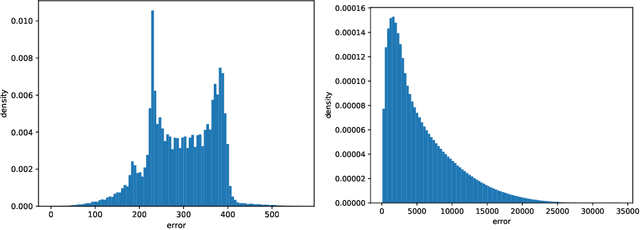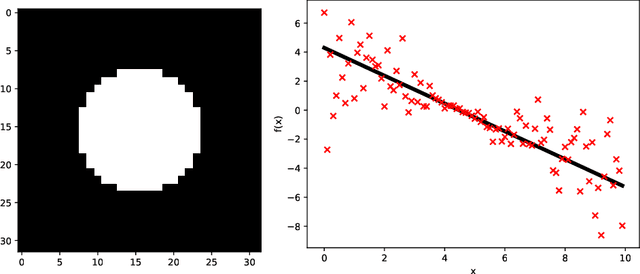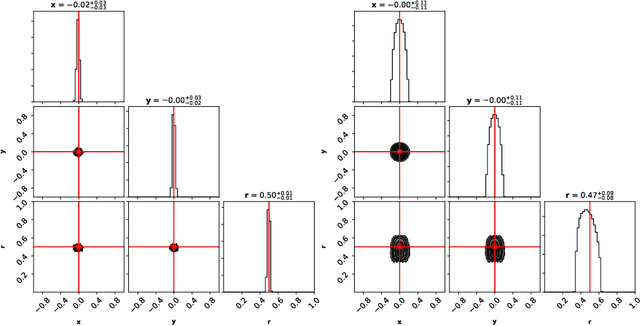Volodimir Begy
Error-guided likelihood-free MCMC
Oct 13, 2020



Abstract:This work presents a novel posterior inference method for models with intractable evidence and likelihood functions. Error-guided likelihood-free MCMC, or EG-LF-MCMC in short, has been developed for scientific applications, where a researcher is interested in obtaining approximate posterior densities over model parameters, while avoiding the need for expensive training of component estimators on full observational data or the tedious design of expressive summary statistics, as in related approaches. Our technique is based on two phases. In the first phase, we draw samples from the prior, simulate respective observations and record their errors $\epsilon$ in relation to the true observation. We train a classifier to distinguish between corresponding and non-corresponding $(\epsilon, \boldsymbol{\theta})$-tuples. In the second stage the said classifier is conditioned on the smallest recorded $\epsilon$ value from the training set and employed for the calculation of transition probabilities in a Markov Chain Monte Carlo sampling procedure. By conditioning the MCMC on specific $\epsilon$ values, our method may also be used in an amortized fashion to infer posterior densities for observations, which are located a given distance away from the observed data. We evaluate the proposed method on benchmark problems with semantically and structurally different data and compare its performance against the state of the art approximate Bayesian computation (ABC).
Likelihood-free MCMC with Approximate Likelihood Ratios
Mar 10, 2019



Abstract:We propose a novel approach for posterior sampling with intractable likelihoods. This is an increasingly important problem in scientific applications where models are implemented as sophisticated computer simulations. As a result, tractable densities are not available, which forces practitioners to rely on approximations during inference. We address the intractability of densities by training a parameterized classifier whose output is used to approximate likelihood ratios between arbitrary model parameters. In turn, we are able to draw posterior samples by plugging this approximator into common Markov chain Monte Carlo samplers such as Metropolis-Hastings and Hamiltonian Monte Carlo. We demonstrate the proposed technique by fitting the generating parameters of implicit models, ranging from a linear probabilistic model to settings in high energy physics with high-dimensional observations. Finally, we discuss several diagnostics to assess the quality of the posterior.
 Add to Chrome
Add to Chrome Add to Firefox
Add to Firefox Add to Edge
Add to Edge